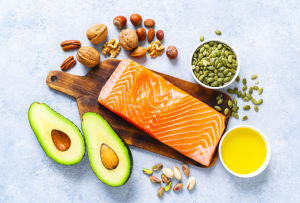The Importance of a Balanced Diet for Optimal Health

In the modern era, where fast food and busy lifestyles dominate, maintaining a balanced diet is more important than ever. A well-balanced diet is the cornerstone of optimal health, influencing everything from energy levels and cognitive function to disease prevention and emotional well-being. This article examines the crucial role a balanced diet plays in achieving and maintaining optimal health, the key components of such a diet, and practical tips for adopting healthier eating habits.
What Is a Balanced Diet?

A balanced diet refers to the consumption of a variety of foods in the right proportions to provide the body with the necessary nutrients it needs to function effectively. These nutrients include carbohydrates, proteins, fats, vitamins, minerals, and water. When your body receives these nutrients in appropriate quantities, it operates at its best, fostering ideal health.
Without a balanced diet, the body may suffer from nutritional deficiencies, weakened immunity, and increased susceptibility to chronic illnesses. In contrast, a nutrient-rich, diverse diet ensures that every organ and system in your body performs optimally, key to achieving optimal health.
Caffeine Consumption: Benefits, Risks & What Science Really Says
The Role of Nutrition in Optimal Health
Nutrition is the fuel that powers every process in the human body. From cell regeneration to hormone production and immune defense, the food we eat directly affects how our bodies function. Therefore, good nutrition is a non-negotiable element of optimal health.
Here’s how specific nutrients contribute to optimal health:
Proteins:

Build and repair tissues, and support immune health.
Carbohydrates:

Complex Carbohydrates
Provide energy for physical and mental tasks.
Fats:

Essential for brain health, hormone production, and absorbing fat-soluble vitamins.
Vitamins & Minerals:

Regulate bodily functions, strengthen bones, and protect against diseases.
Water:

Maintains hydration, aids digestion, and flushes out toxins.
A deficiency in any of these can disrupt bodily functions and delay the journey toward optimal health.
How to Start a Fitness Routine You’ll Stick With.
Benefits of a Balanced Diet
A balanced diet offers a range of physical, mental, and emotional benefits. Here are some key advantages directly related to achieving optimal health:
1. Enhanced Energy Levels

Eating a variety of whole grains, lean proteins, and fresh produce stabilizes blood sugar levels and provides sustained energy throughout the day. This energy balance is essential for ideal health and productivity.
2. Weight Management

A balanced diet helps prevent obesity, which is a major risk factor for chronic diseases. Maintaining a healthy weight through good nutrition significantly enhances optimal health and reduces strain on the heart, joints, and other organs.
3. Improved Digestive Health

Fiber-rich foods like fruits, vegetables, legumes, and whole grains support gut health. A healthy gut is closely linked to optimal health, affecting everything from digestion to mental well-being.
4. Stronger Immunity

Micronutrients like vitamins C, D, and E and minerals like zinc and selenium boost the immune system. A robust immune response is a core element of optimal health, protecting the body from infections and illnesses.
5. Mental Clarity and Mood Stability

Omega-3 fatty acids, complex carbs, and B vitamins play a key role in brain function and mental health. Better nutrition leads to improved focus, reduced anxiety, and overall optimal psychological health.
What Is Prostate Cancer? A Complete Guide to Prevention and Awareness.
Components of a Balanced Diet for Optimal Health
To support optimal health, your diet should include a variety of foods from the five major food groups:
1. Fruits and Vegetables

- Provide essential vitamins, antioxidants, and fiber.
- Aim for at least 5 servings per day.
- Variety ensures broader nutrient coverage.
2. Whole Grains

- Include brown rice, quinoa, whole wheat bread, and oats.
- These provide complex carbohydrates and help regulate blood sugar, essential for ideal health.
3. Proteins

- Opt for lean meats, fish, eggs, legumes, and plant-based proteins.
- Protein aids muscle growth and cellular repair, critical for optimal health.
4. Dairy or Alternatives

- Provides calcium and vitamin D for strong bones and teeth.
- Choose low-fat or plant-based alternatives for better, ideal health outcomes.
5. Fats

- Focus on healthy fats like avocados, nuts, seeds, and olive oil.
- Avoid trans fats and limit saturated fats to maintain heart health and overall optimal health.
Prostate Health After 40: What Every Man Needs to Know
The Dangers of an Unbalanced Diet
Consistently poor eating habits can severely impair optimal health. Some common issues include
- Obesity
- Type 2 Diabetes
- Cardiovascular Disease
- Nutrient Deficiencies
- Mood Disorders
- Digestive Issues
These conditions not only diminish quality of life but also strain healthcare systems and reduce life expectancy. Clearly, neglecting balanced nutrition poses a significant threat to ideal health.
Practical Tips for Achieving a Balanced Diet

1. Plan Meals Ahead
Meal planning prevents impulse eating and encourages healthier choices that support optimal health.
2. Eat Mindfully
Pay attention to hunger cues, chew thoroughly, and savor your meals. This approach enhances digestion and aligns with maintaining optimal health.
3. Read Nutrition Labels
Being informed about what you're eating helps you make better decisions for your optimal health.
4. Hydrate Consistently
Aim for at least 8 glasses of water daily. Good hydration is vital for metabolism and detoxification, key elements of ideal health.
5. Practice Moderation, Not Deprivation
Allow occasional treats without overindulging. Balance is the essence of ideal health.
Special Considerations for Different Groups
Children

- Need adequate protein and healthy fats for growth.
- Avoid excess sugar and processed foods for lifelong optimal health.
Adults

- Require balanced meals with a focus on heart health and weight management.
- Fiber and antioxidants are particularly important for sustaining optimal health.
Elderly

- Need more calcium, vitamin D, and B12 to support aging bones and memory.
- Nutrient-dense meals are critical to maintaining optimal health in old age.
The Role of Culture and Environment
Cultural practices and environmental availability also influence diet. Incorporating traditional, nutrient-rich foods and locally available produce can enhance diversity and accessibility, helping communities reach ideal health through sustainable practices.
Don’t Let the Heat Beat You: How to Prevent Heat Stroke.
The Link Between Diet and Chronic Disease Prevention
Extensive research shows that a balanced diet significantly lowers the risk of chronic illnesses:
Heart Disease:

A diet low in saturated fats and high in omega-3 fatty acids supports optimal cardiac health.
Cancer:

Antioxidants in fruits and vegetables help neutralize free radicals.
Diabetes:

Whole grains and low-glycemic index (GI) foods help manage insulin response.
Hypertension:

Low sodium and high potassium intake control blood pressure.
Preventing these diseases is one of the strongest motivations for maintaining optimal health through diet.
Conclusion
In conclusion, the importance of a balanced diet cannot be overstated when it comes to achieving optimal health. Every meal is an opportunity to fuel your body with the nutrients it needs to function efficiently. From reducing the risk of disease to enhancing mental clarity and physical performance, a balanced diet is the foundation of optimal health.
To make the most of your wellness journey, start with simple steps—add more fruits and vegetables, switch to whole grains, drink more water, and be mindful of portion sizes. Over time, these small changes will accumulate, bringing you closer to lifelong optimal health.
Remember, there is no one-size-fits-all solution. Tailor your diet to your needs, lifestyle, and culture while staying aligned with nutritional principles that promote ideal health. The power to live a healthier, longer life is on your plate—choose wisely.
Read More Articles
Instagram Twitter Facebook LinkedIn Quora Google News
Our Other Engagements:

 https://livewithgreen.com/balanced-diet-for-optimal-health/
https://livewithgreen.com/balanced-diet-for-optimal-health/
.jpg)